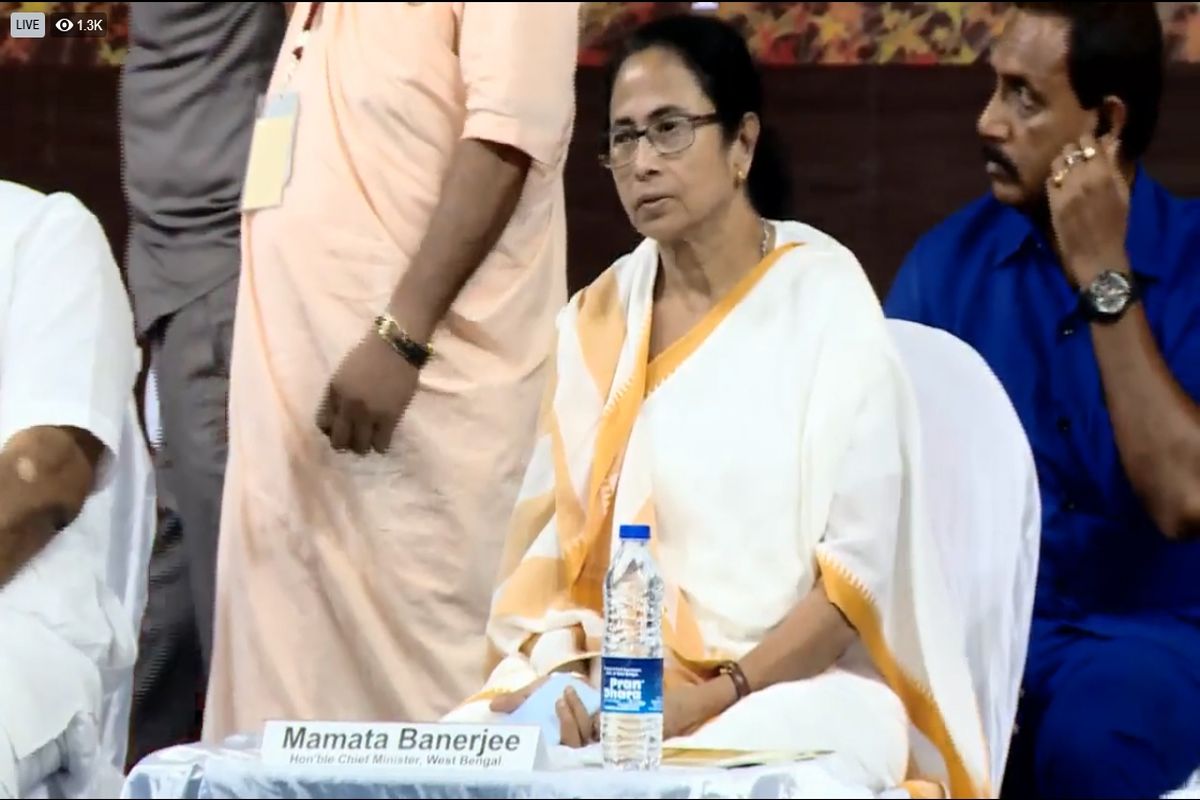Palamau tigers head for home: Foresters
It's possibly the time for the Jharkhand tigers to return home, as their current movement reflects.
Besides, any person involved in a conspiracy to lynch another person or who abets an act of lynching shall be “punished in the same manner as if he had himself committed lynching”.

West Bengal Chief Minister Mamata Banerjee during inauguration of Sri Chaitanya Mahaprabhu Museum in Kolkata on Aug 13, 2019. (Photo: IANS)
The state Assembly today passed the West Bengal (Prevention of Lynching) Bill 2019 to check incidents of mob assault and lynching, with the legislation providing for life imprisonment to those injuring a person and capital punishment for causing death. Both the Left Front and Congress supported the Bill while chief minister Mamata Banerjee announced that a compensation scheme was being put together for the families of lynching victims.
The BJP neither supported nor opposed the Bill as it felt that the legislation may be used for settling political scores. “We are preparing the compensation scheme wherein the family of the victim will receive at least Rs 5 lakh and might also get a job. Lynching is a social evil and the Supreme Court has directed to take action against lynching. The Central government has not introduced any anti-lynching legislation so we are bringing this law in our state to fight against this evil. We should come together to fight against this evil together,” said Miss Banerjee while tabling the Bill in the Assembly.
Advertisement
She urged the Centre and other states to pass a similar anti-lynching legislation. She said that Rajasthan faced problems in passing the anti-lynching legislation as they had not taken the Governor’s consent. In our case, we took prior permission from the Governor before placing the Bill, she added. The Bill aims to protect the constitutional rights of vulnerable persons and prevent incidents of lynching. Along with this, the Bill proposes action against those involved in perpetrating the crime.
Advertisement
It aims “to provide for effective protection of the constitutional rights of vulnerable persons and to prevent the lynching and to punish acts of lynching in the state”. Three categories of punishment have been proposed in the anti-lynching bill. If an act leads to the victim “suffering hurt”, the perpetrator would be sent to jail for a maximum of three years and slapped a fine of one lakh. If the victim suffers “grievous hurt”, the punishment would be life imprisonment or imprisonment up to 10 years and the fine would range between Rs 25,000 to Rs 3 lakh. In case of death of the victim, the perpetrator would be “punished with death sentence or rigorous imprisonment for life” and fine ranging from Rs 1 lakh to Rs 5 lakh”.
Besides, any person involved in a conspiracy to lynch another person or who abets an act of lynching shall be “punished in the same manner as if he had himself committed lynching”. The Bill also prescribes punishment of imprisonment upto three years along with a fine extending upto Rs 1 lakh against anyone who is responsible for encouraging hostile environment towards a person or any group of persons. In an attempt to stop any kind of mob violence leading to mob lynching, the Bill directs the officer-in-charge of the police stations to take all reasonable steps to prevent any kind of incident of moblynching.
As per the Bill, the state director general of police will appoint a coordinator not below the level of Inspector General (IG) and in case of Kolkata the police commissioner will appoint a Nodal Officer not below the level of Additional Commissioner of Police who will act as a nodal officer to monitor and take measures to prevent incidents of lynching in the state and Kolkata respectively. They will hold regular meetings with the concerned officers and keep a strict monitoring on the social media postings to anticipate and prevent any kind of incitement.
During the discussion on the Bill, CPI-M MLA Tanmay Bhattacharya apprehended that since “offensive material” of the bill means printed or digital material, the government may put curbs on the freedom of press. Forward Bloc member Ali Imran Ramz sought provision for conducting trial in lynching cases in fast track courts and stressed that police officers present at the venue of the incident of mob violence should be made accountable and if required booked for charges of dereliction of duty. From 2014 to 2019 there was a 97 per cent rise in incidents of lynching in the country, he said.
Advertisement